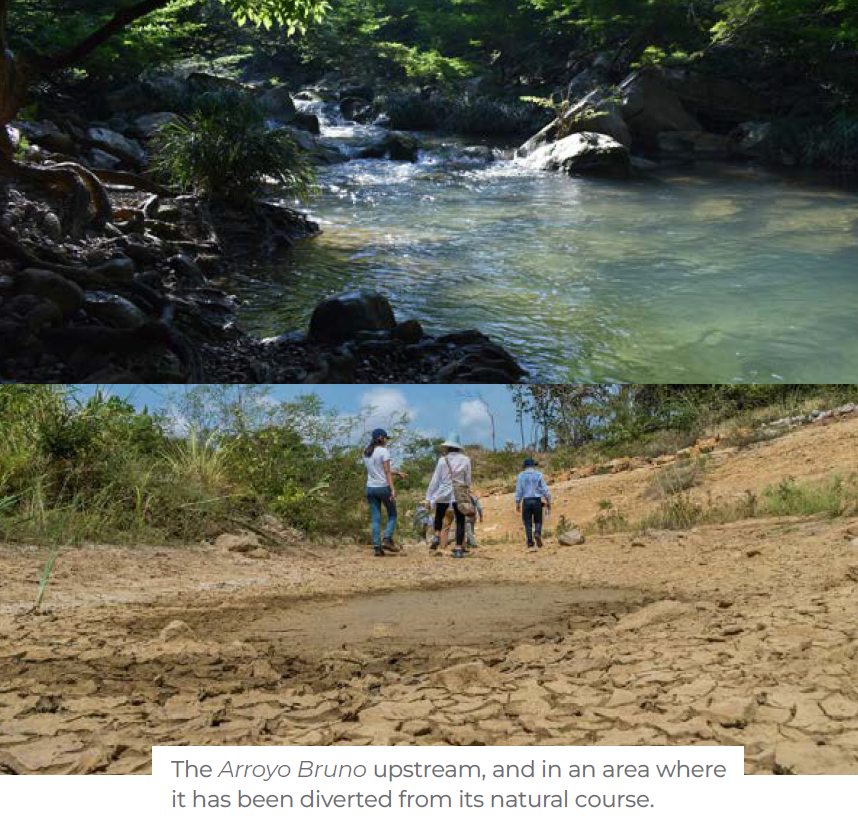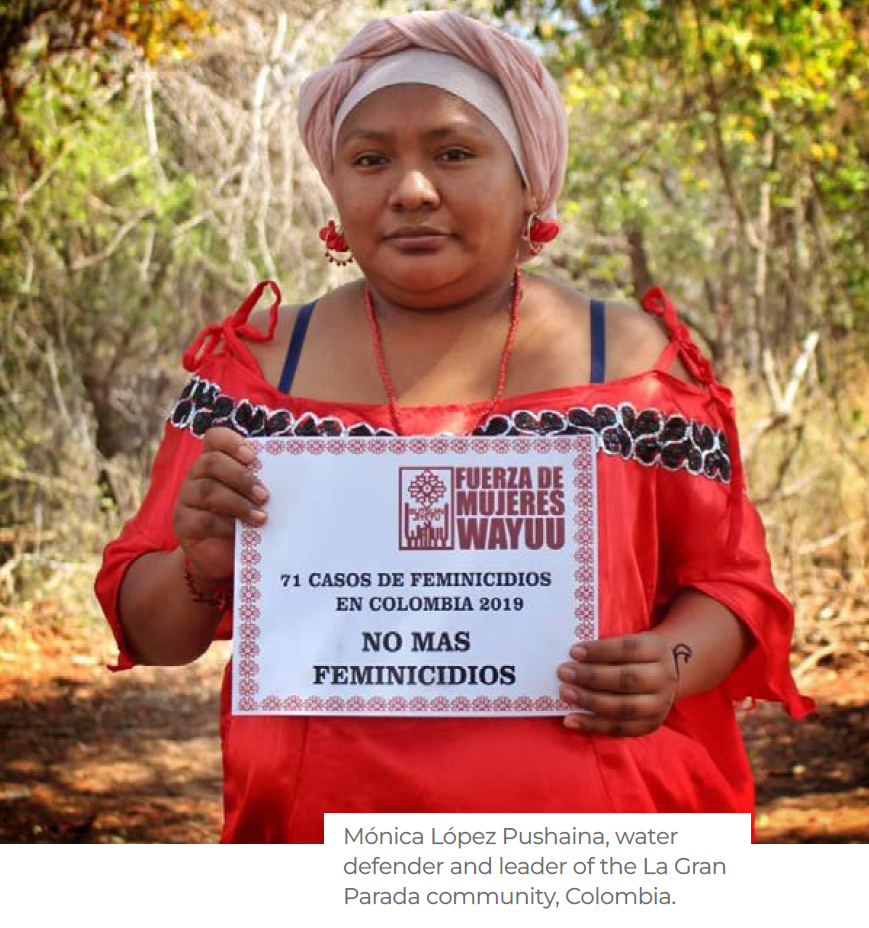What Christians can do to end the corporate abuse of people and planet
“They harm our very dreams, a train runs along the tracks 24 hours a day, leaving noise pollution in its wake, environmental pollution with all of the dust that disperses through the air, into the environment, along those 147 kilometres, that cover the entire Wayúu territory.”
These are the words of Misael Socarras Ipuana, a member of the Wayúu community of La Gran Parada, Colombia, who have suffered for years the impacts of the huge open-pit Cerrejón coal mine. It’s thought that this mine has caused more than 20 communities to be forcibly displaced and more than 17 streams redirected or polluted.
While communities suffer, the multinational owners of the mine - BHP Billiton plc, Anglo American plc and Glencore (all based in the UK or listed on the London Stock Exchange) have profited from the export of million tonnes of coal to Europe, in the midst of the climate crisis.
It’s not only mining for fossil fuels, minerals and metals but also the destruction of forests for agriculture; the violation of workers’ rights in factories; the collusion of companies with state crimes; and more. As Pope Francis laments, multinational companies “operate in less developed countries in ways they could never do at home.”
These are not abstract tragedies but symptoms of a broken economic system: a “new form of colonialism” that exploits poorer countries.
Addressing the root causes
The Christian faith calls us to look for the root causes of these symptoms: business models that put profit above people. Jesus himself warned that the worship of God and that of Mammon (the false idol of money) are incompatible. Money grants the power to transform human relations and nature into things that can be bought and sold - and so to manoeuvre them with no strings attached.
But prioritising profit at all costs is not inherent to business. When business helps to create dignified jobs and to cultivate relationships, it can be a “noble vocation”.
As consumers, it’s near impossible for us to avoid human rights and environmental violations linked to the products or services we buy. And it shouldn’t be our responsibility to ensure that the products we buy have been produced responsibly.
Currently, companies benefit from a gap in rules governing companies’ supply chains, subsidiaries and investments. The UK Government has for too long relied on the goodwill of companies to change. Where legislation does exist, it lacks punch. The UK’s Modern Slavery Act, for instance, relies on the idea that if a company produces an annual report on what it’s doing to combat modern slavery in its supply chains, that this will translate to action on the ground. Unfortunately that’s often not the case.
Parliamentarians have recently taken steps to tackle deforestation in supply chains. But supply chain abuses are multifaceted, pointing to our interdependence with the environment and eco-systems. This is why any approach to regulating corporate activity requires what the Catholic church calls an “integral ecology” vision.
Calls for a new law
The National Investing Bodies of the Church of England (NIBs) rightly “expect businesses to demonstrate consciousnesses with regards to human rights through an active commitment to ensure that they prevent or mitigate the risk of adverse impacts on human rights in all their activities”. What if we had legislation that made this not only an expectation, but a necessity – and extended this to the environment?
The Catholic Agency for Overseas Development (CAFOD), along with a coalition of NGOs and trade unions, are calling for a “Business, Human Rights and Environment Act” to address these issues. Under this law, companies would need to prevent abuse happening in the first place through conducting ‘human rights and environmental due diligence’ - and could be held accountable if they failed to do so.
This law has been found legally feasible and recommended by Parliamentarians on the Joint Committee on Human Rights. Leading UK businesses are also calling for stronger rules – to bring up standards for all companies.
UK companies must be compelled to root out and answer for abuses, wherever they operate. But we are still a long way from seeing the new law we are calling for become reality.
Help us by asking your MP to pledge their support: cafod.org.uk/newlaw
Louise Eldridge is the lead policy analyst on the private sector at CAFOD - the Catholic Agency for Overseas Development
.
CAFOD is an international development charity and the official aid agency of the Catholic Church in England and Wales.
Images sourced from the excellent CAFOD report on Latin America here: https://cafod.org.uk/content/download/56617/776987/version/2/file/Protecting%20our%20common%20home%20HDR%20in%20Latin%20America_v5.pdf






